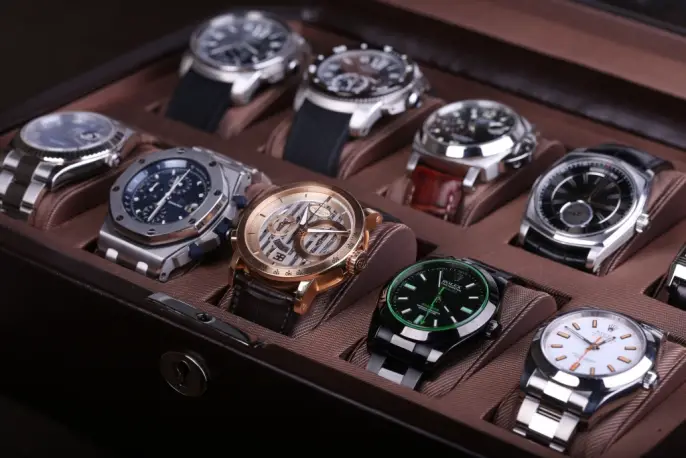There was a time when watches were considered as a sign of luxury and people used to take pride in their skill of buying a good watch. Although luxury watches do exists in this day and age too, however, the newer generation of customers are not as skillful and knowledgable about the art of buying a watch. That is partly because the existence of handheld gadgets and tech alternatives such as smart watches have made them undermine the sheer genius of conventional watches. Most younger customers merely view watches as a fashion accessory and not as a utility.
However, it is very important to know the right kind of watch that will work best for you. There are a few basic things that you should consider when buying a watch.

Your Budget
Of course, the most basic thing that will decide the kind of watch that you will be buying is your budget. Knowing how much you are willing to spend will enable you to allocate an amount and shortlist the watches that fall in your budget category. Luckily, with the increased completion, there are great watches available in every price range so you should not feel upset if you do not have enough money to be able to afford a Rolex Japan. You will be able to find watches that fit your budget, but predefining a budget saves you time and hassle of browsing through unwanted items.
Purpose of Buying
Every single watch has its own utility, pros, and cons and therefore it is important to understand why you are buying a watch. A few questions that you should answer are whether you are buying it for daily wear or exclusive wear? Are you looking for a sports watch or a divers watch? Can your watch potentially be exposed to dust, moisture, and shock? Answering these questions will help you figure out what kind of watch do you exactly require. If you are looking for a sports watch, something like a FitBit would be a good option. There are dedicated divers watches and seaman watches available for those who wish to wear one underwater. For a daily wear watch that can be exposed to dust or moisture, stick to Quartz watches which are not sensitive to these conditions.
Movement
The driving force of every watch is its movement. This work of engineering defines how expensive a watch will be and for what purpose can it be used so it is important that you understand the differences in different types of watches. There are two types of hand movements in a watch: sweeping and ticking. Sweeping movements indicate that the watch is either mechanical or automatic. Both mechanical and automatic watches are similar in functionality with both having a permanent battery life. However, these watches are sensitive to shock, dust, and moisture and may have accuracy issues over a period of time. Quarts, on the other hand, are watches with a ticking movement and are cheaper than the former too. While its battery requires to be replaced from time to time, it is stronger to external conditions such as shock and moisture and its time telling accuracy is 100%.
[Image via: Google Images]

I like how you mentioned that watches fit in the lifestyle you have. Personally, I am just wishing that my wife would give me a Ulysse Nardin Diver Watch during the holidays. We would need an expert in jewelry to guide us on a Ulysse Nardin Diver Watch Collection so I can look into them.